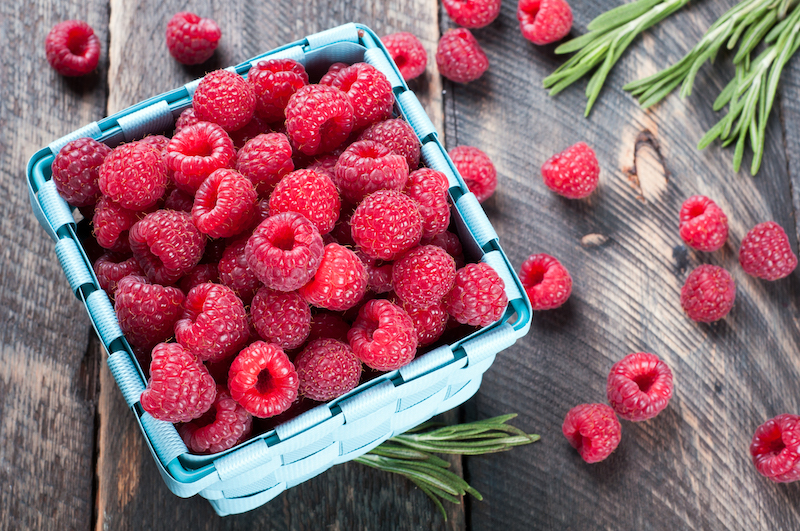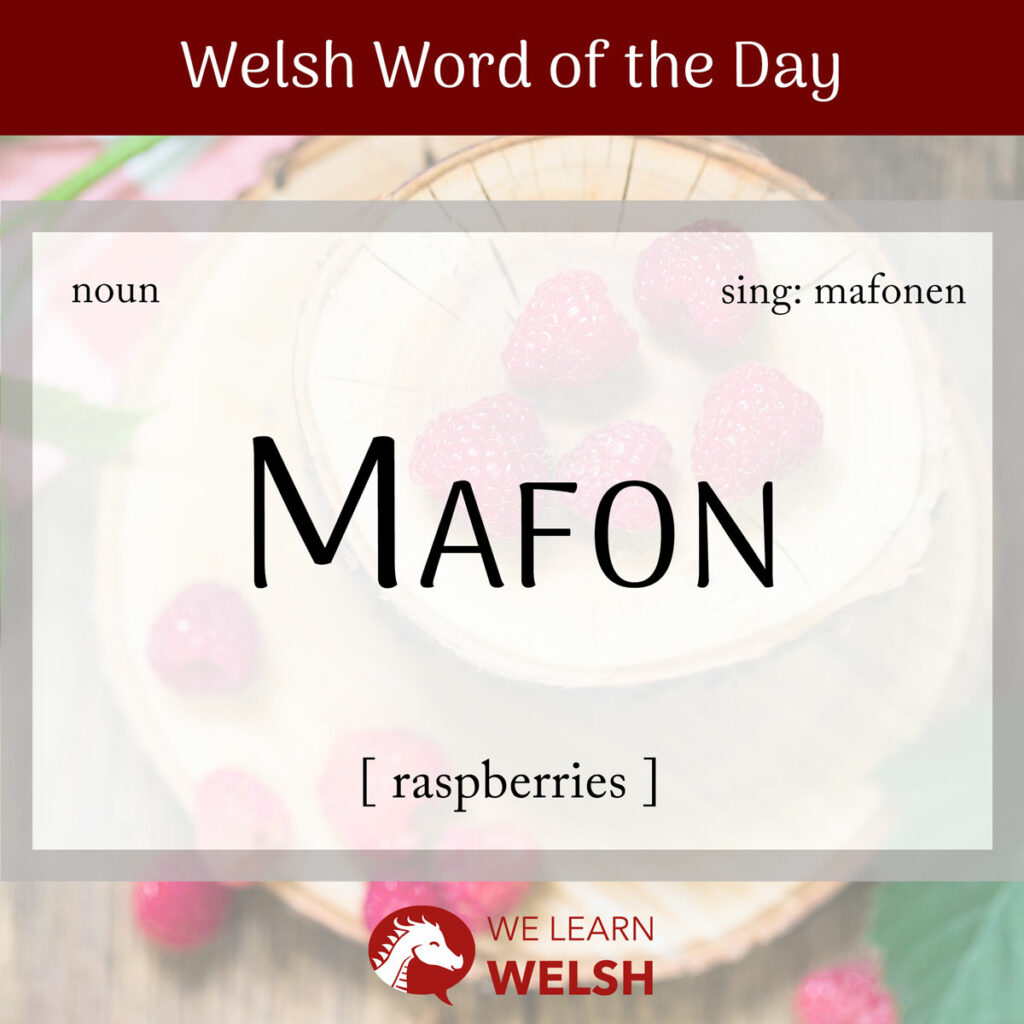Do you have a favourite kind of mwyar / aeron (berries)? I have to admit I find it pretty hard to choose, especially living in the UK where we have so many wonderful options right on our doorstep!
One particularly delicious kind of mwyaren (berry) is the sweet and nutritious mafonen (raspberry). Mafon (raspberries) is the plural, or collective, form.
mafon
raspberries
If you haven’t come across the term “collective” before, this is a kind of noun in Welsh where the counting system differs a bit from the normal singular-plural dichotomy. In English, all nouns are by default singular – there is one of them. Raspberry is a great example of this; this is the default form of the word that is listed in dictionaries, and raspberries is the plural.
In Welsh, while many words follow familiar plural patterns, there is also a distinct system for noun number: the collective-singulative system. In this system, the default form of a noun is the collective, which functions similarly to a plural but also conveys a sense of unity or relatedness among the objects it describes. This structure is particularly common for words referring to animals and plants.
In order to form a singulative from a collective noun, the suffix -en or -yn is usually added. In this case, we’re using –en because mafonen is feminine. This also means that it mutates after the definite article y (the), creating the rather tongue-twisting y fafonen (the raspberry).
The same soft mutation would apply to mafon in the plural, but plural nouns never soft mutate after the definite article, no matter their gender.
Soft mutation
fafon
Nasal mutation
N/A
Aspirate mutation
N/A
The etymology of mafon is very unclear, as there aren’t similar words in the other Celtic languages. Despite this, this word has come to be pretty important in Welsh. Plenty of different kinds of mwyar in Welsh are often described as types of mafon, like the following:
- mafon duon = blackberries
- mafon logan = loganberries
- mafon y llawr = dewberries
- mafon Ffrengig = mulberries
These tend to be interchangeable with equivalents where mafon is replaced with the generic mwyar (berries), so mwyar duon (blackberries), mwyar logan (loganberries), etcetera. You could definitely argue that mafon are the superior berries in the Welsh language!
Maen nhw’n bwyta mafon a siocled.
They are eating raspberries and chocolate.
Some mwyar that do get their own unique names are eirin Mair (gooseberries), mefus (strawberries), cyrains duon (blackcurrants), and llus (blueberries / bilberries).
However, with the exception of mefus, I have heard pretty much every kind of mwyaren referred to casually as some type of mafonen – the general principle seems to be to mash mafon(en) together with the colour of the mwyaren you’re talking about and hope people know what you mean! Unless you’re chatting with a real mwyar expert, you should be alright.
Since the word mafon is often used to describe various different kinds of berries, raspberries specifically are sometimes referred to as mafon cochion (red raspberries), particularly in North Wales.
In South Wales, you are more likely to hear the dialect word afan, the singular of which is afanen or afansen. This may in fact be the clue to the etymology of the word overall, as it’s remarkably similar to both the standard word mafon itself and to the Cornish word for the same berry, which is avan.
There are also plenty of regional variations and slang terms for most berries and other kinds of common British plants.
Dw i’n hoff iawn o fafon.
I really like raspberries.
Picking berries in the summer and early autumn is a classic pastime for British children, including mafon gwylltion (wild raspberries). I still love picking mafon duon (blackberries) from the coetrych (hedgerow) on my walk to work. In Welsh, berrying as collecting berries may be translated as mwyaru, casglu mwyar or casglu aeron. Casglu means to collect.
I was surprised when doing the research for this article to find out that mafon are actually related to the flowers rhosynnau (roses), but it makes sense given how melys (sweet) they are and their almost pinkish coch (red) colour.
Growing on a coeden fafon / llwyn mafon (raspberry bush), these mwyar are eaten and enjoyed in many products, such as:
- jam mafon = raspberry jam
- diod mafon = raspberry cordial
- tarten / teisen mafon = raspberry pie
- jin mafon = raspberry gin
- hufen iâ mafon = raspberry ripple
What’s your favourite way to enjoy mafon?


